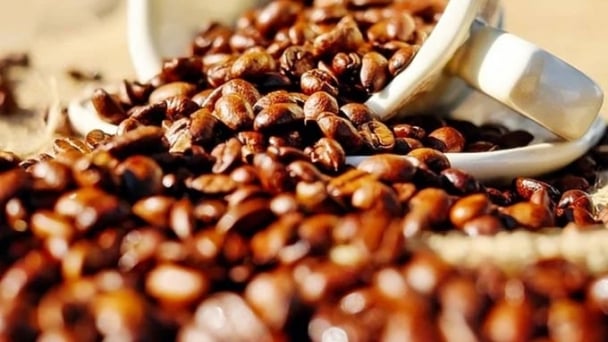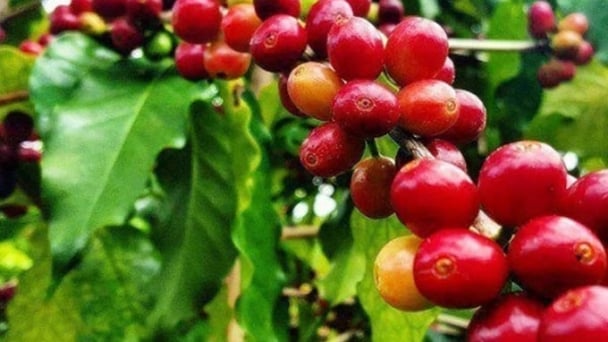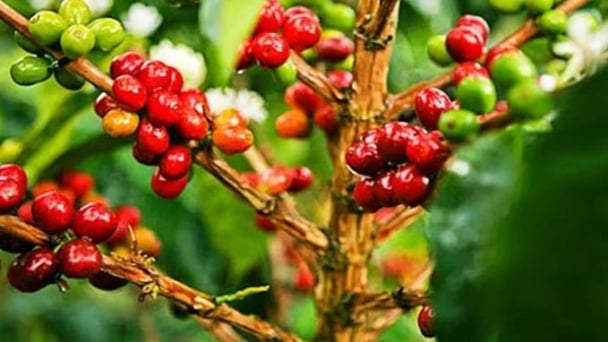June 21, 2025 | 02:52 GMT +7
June 21, 2025 | 02:52 GMT +7
Hotline: 0913.378.918
June 21, 2025 | 02:52 GMT +7
Hotline: 0913.378.918
In the world, the London and New York exchange prices on March 14 decreased sharply.
In particular, the price of Robusta on the London exchange for delivery in May 2024 decreased by $ 47 USD; down to $ 3,260/ton. And the term for delivery in July 2024 decreased sharply by $ 39; at $ 3,159/ton.
On the New York exchange, the price of Arabica delivered in May 2024 decreased sharply by 3.25 cents; to 182.65 cents/lb. And the price for the July 2024 delivery term decreased by 2.85 cents; at 181.25 cents/lb.
World coffee prices today dropped sharply on both the London and New York exchanges due to the liquidation of funds and speculation after the newly announced US inflation data.
The financial community believes that there will be no changes in interest rates at the Fed's last March 2024 meeting. This bank's interest rate cut will probably fall in the middle of the year. In addition, recent rains in Brazil continue to put pressure on Arabica prices.
Increased inventory on both floors is also the reason why coffee prices go down. However, Robusta still has the risk of lacking supply in the short term.
In the long term, participants in a recent Reuters survey all said that agricultural product prices will be pressured in the coming months due to more favourable supply prospects. It is forecast that the global coffee supply-demand balance in the 2024/25 crop year will average around a surplus of 3 million bags, compared to a surplus of 0.6 million bags in the 2023/24 crop year.
According to analysts, the main factor affecting the coffee market in the near future will be the change in climate patterns, from the current El Nino to La Nina, which could happen as early as the second half of this year.
El Nino is often detrimental to the production of this agricultural product because it often leads to dry weather in Robusta coffee-growing areas in Asia and the climate is warmer than normal in Brazil. A shift to La Nina could bring more favourable weather for crops.
Thus, world coffee prices on 03/14/2024 simultaneously decreased compared to yesterday.
The domestic market price on March 14 decreased by up to VND 1,000/kg compared to yesterday.
Specifically, in Lam Dong province, 3 districts of Di Linh, Bao Loc and Lam Ha are trading at the same price level of VND 90,200/kg.
In Dak Lak, Cu M'gar district today is purchasing at VND 91,000/kg. Ea H'leo and Buon Ho districts are trading at a price of VND 90,900/kg.
In Dak Nong province, traders Gia Nghia and Dak R'lap are trading at VND 91,100 and VND 91,000/kg, respectively.
In Gia Lai province, Chu Prong district is trading at VND 90,800/kg, while Pleiku and La Grai are maintaining the same price at VND 90,700/kg.
The purchasing price in Kon Tum today is VND 90,800/kg.
Domestic coffee prices today dropped sharply and are at risk of not being able to maintain the threshold of VND 91,000/kg.
Thus, the domestic coffee price on 03/14/2024 is trading around the threshold of VND 90,200 - 91,100/kg.
Translated by Hoang Duy

(VAN) Coffee prices on June 20, 2025, fluctuated, with Arabica plunging by 3%. Domestic coffee prices remained flat, trading at VND 103,000 – 103,500/kg.

(VAN) The vice president of fertilizer with Stone X Group says increasing tensions in the Middle East are impacting global nitrogen prices.

(VAN) Coffee prices on June 19, 2025 dropped globally. Domestic coffee prices dropped by as much as VND 2,300, plunging to around VND 107,100 - 107,700/kg.

(VAN) Coffee prices on June 18, 2025, declined globally, with Arabica losing about 2.3%. Domestic prices fell by VND 1,600, down to VND 109,400 – 110,000/kg.

(VAN) Japan will release another 200,000 metric tons of rice from its emergency stockpile to tackle a doubling of prices since last year, Agriculture Minister Shinjiro Koizumi said on Tuesday.

(VAN) Coffee prices on June 13 declined sharply for Arabica. Domestic coffee market in Vietnam dropped by VND 2,000, trading at VND 111,500 – 112,300/kg.

(VAN) Coffee prices on June 12, 2025, continued to fall. Domestically, coffee prices decreased by another VND 2,000, trading at VND 111,500 – 112,300/kg.